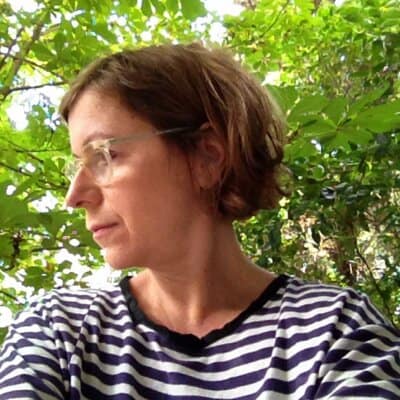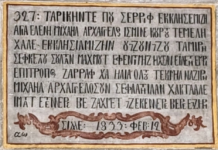 As a dweller of Nişantaşı, I am lucky enough to be located in one of the centers of the Istanbul arts and cultural scene. Galeri Işık is a place that I pass by every single day, often several times a day. And, this time, I was attracted by a unique exhibition that immediately caught my attention: “Tepetaklak (Upside Down): Voices of Contemporary Swedish Illustration.”
As a dweller of Nişantaşı, I am lucky enough to be located in one of the centers of the Istanbul arts and cultural scene. Galeri Işık is a place that I pass by every single day, often several times a day. And, this time, I was attracted by a unique exhibition that immediately caught my attention: “Tepetaklak (Upside Down): Voices of Contemporary Swedish Illustration.”
Organized by the Swedish Consulate General in honor of the 25th Anniversary of the United Nations Convention on the Rights of the Child (the CRC), this exhibition featured works of Swedish illustrations of children’s books. It was an ode to children, children’s rights and art, and part of a larger month-long project called “Young Voices,” which also featured seminars, workshops and round-table discussions.
As someone with a master’s degree in human rights, a fan of all forms of art and culture and an individual with a particular affinity for Swedish culture, I was immediately drawn into the exhibition. As fate had it, I soon also found myself in dialogue with none other than the creative mind behind it, the Swedish Counsellor for Cultural Affairs Suzi Erşahin.
Suzi Erşahin is a woman from a multicultural background — she is half-Turkish and half-Swedish — and with a flair for the arts and a heart for human rights. I had the chance to interview her for a closer look at her international life, her role and activities as Cultural Attaché of the Consulate General of Sweden and her work as the creative mind behind this unique exhibition.
What could you tell about yourself and how you ended up in Istanbul and what you are doing here and what is your multinational background?
I was born in Sweden. My mother is Swedish and my father is Turkish, but I grew up in Sweden completely and studied in Sweden. I have never lived in Turkey before but used to come every summer to Turkey as a child. Last year in 2013, I applied for a job as the Counsellor for Cultural Affairs, the “Cultural Attaché” of the Swedish Consulate. I got the job and here I am working at the Swedish Consulate with issues of culture. So, that’s how I ended up in Istanbul.
So, you had never lived in Turkey before?
No, I have never lived here. But my sister lives here and we have a house in the south of Turkey, so I have been coming here every summer and visiting my sister. So it’s not completely new to me.
Could you describe your work?
I create the contacts between Sweden and Turkey. It’s the most fun project too, to be able to do this. To create relationships between Sweden and Turkey. That is what my job is. And as I am interested in all kinds of culture — I get the best out of my job because my job is to work with all fields of culture. At Galeri Işık, we had a seminar on children’s rights and the rights of children to culture. In December, I will be doing a seminar in documentary filmmaking. I have done different round table meetings within different areas, in design and architecture, in dance etc. And I am hoping to work more with literature, music, another Young Voices project…there are all different kinds of subjects that can create liaisons between Sweden and Turkey.
Are the projects all up to you? Are there certain themes you are requested to work on, or do you have complete freedom in your ideas?
No, a lot of the ideas come from me. But there are certain wishes or desires from the Embassy in Ankara and also from the Consulate in Istanbul. I also work for the Embassy in Ankara, as well as for the General Consulate. We discuss what the subjects could be. But, I would say that most of it, so far, are my ideas of how to best create ways for collaborations. I also think that I have put some seeds down that I hope will grow on to create contacts between Swedes and Turks that can then continue to grow without me being here. That’s my whole aim, that I can create points of contact for Sweden and Turkey. And also from a Swedish point of view, the knowledge that I am here helps initiate a dialogue. I get proposals from Sweden or people contacting me about their visits to Istanbul, asking me for networks, contacts etc. Gaining this knowledge is also great from the Swedish perspective. And it works the other way around also, from the Turkish perspective as well.
What has been your biggest surprise about Istanbul?
My biggest surprise has been maybe how much I Iove Istanbul. And I have met so many talented and fantastic Turkish people everywhere I have been, really. I can only say positive things in terms of the city. Of course, it is a certain struggle with traffic and I miss quiet green areas and quiet places, so maybe that’s a little bit of a challenge. Sometimes I wish to go somewhere where it’s calm and quiet and green. And I don’t know where that would be exactly in Istanbul…
Then the next question would be, where do you unwind and relax?
I think in my house. The balcony looks not over the Bosphorus, I wish it did! But, it does look over a garden. And walking around the Bosphorus and looking at the sea is also relaxing and pleasurable.
Do you have any advice for exapts or for anyone coming to Istanbul?
Explore and go to markets, explore different parts of Istanbul. Don’t stay just around Sultanahmet or Taksimi, but try to go out and explore and do things that normal people do in Istanbul. Take the normal boat and go to various bazaars. And just explore the normal life. That’s how I work.
What would be your ideal project as a Counsellor for Cultural Affairs of the Swedish Consulate? What would be the thing that you would like to have done before you have left?
That’s a hard question. For me, I think that my biggest wish actually is for different artists, from whatever the field, from Sweden and Turkey to connect with one another and start working together. I think that’s my biggest wish.
And then continue on even after you have left?
Yes, absolutely. I think that I am just a connector in a way. And my biggest wish is that Swedish and Turkish practitioners meet. It could be within theater, film, children’s culture, dance, anything. And that somehow a dialogue is started and it continues. I think that’s my biggest wish. And my job is to awaken an interest in Sweden. And I hope that if I can succeed in my job, I can awaken an interest in and for different groups here about Sweden.
Lastly, is there anything else that you would like to add?
The exhibition is a month long project that we are doing because this month is an international celebration on human rights. So, it’s a month long project and we focus on children’s rights in different ways. And I feel really passionate about it. I mean, we all are children, and then we grow up and become like you or me or anyone else. So, childhood is always such an essential part. Also, since I work with culture, and I am an artist to begin with, I think it’s essential to have culture in your life somehow. Everybody should have the right to culture and if we can begin with children, then it can only get better when they grow up. So, in that sense, I am hoping that I’m planting some seeds of dialogue between Sweden and Turkey. It’s been done before also within literature. But hopefully this can be the beginning of another set of collaborations — the planting of seeds of culture and collaboration.
We followed Upside Down with “Look at Me! See Me Write!” seminars that focused on new media, such as the theater, the circus, and writing children’s magazines. It has been a series of projects related to children, culture and planting the seeds of dialogue between Turkey and Sweden.
Melis Kanık is a contributor to Yabangee









